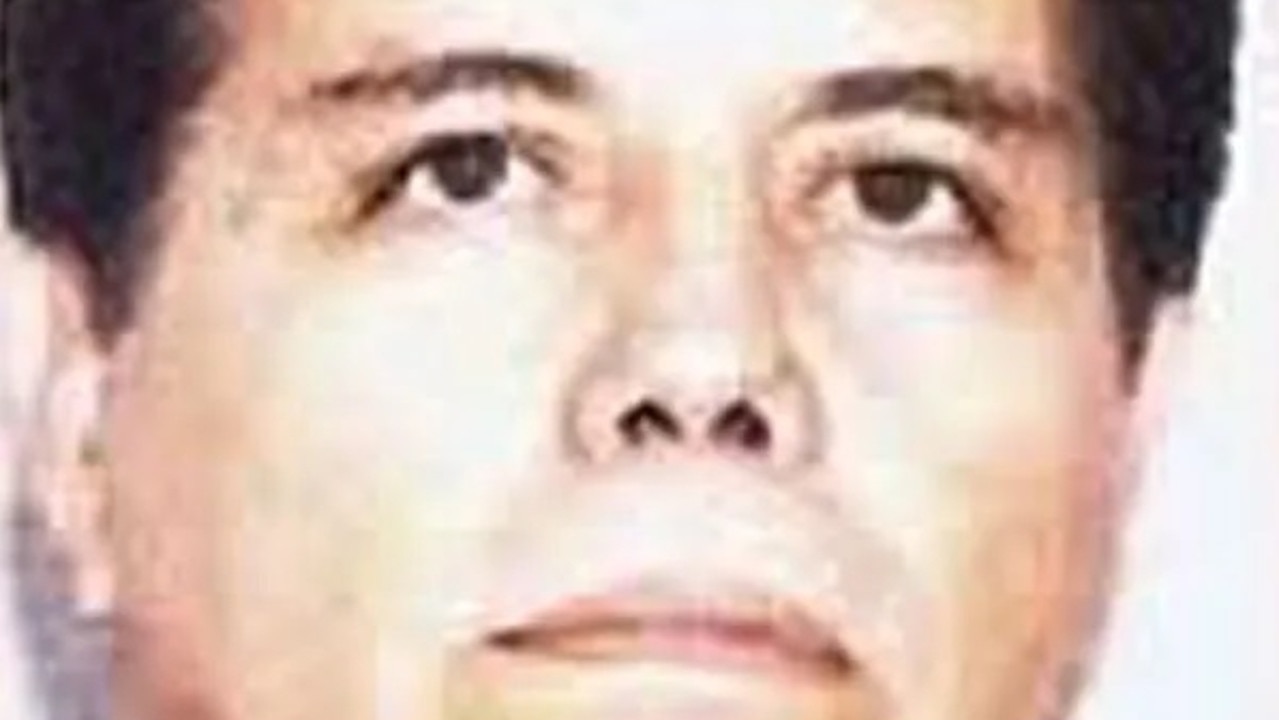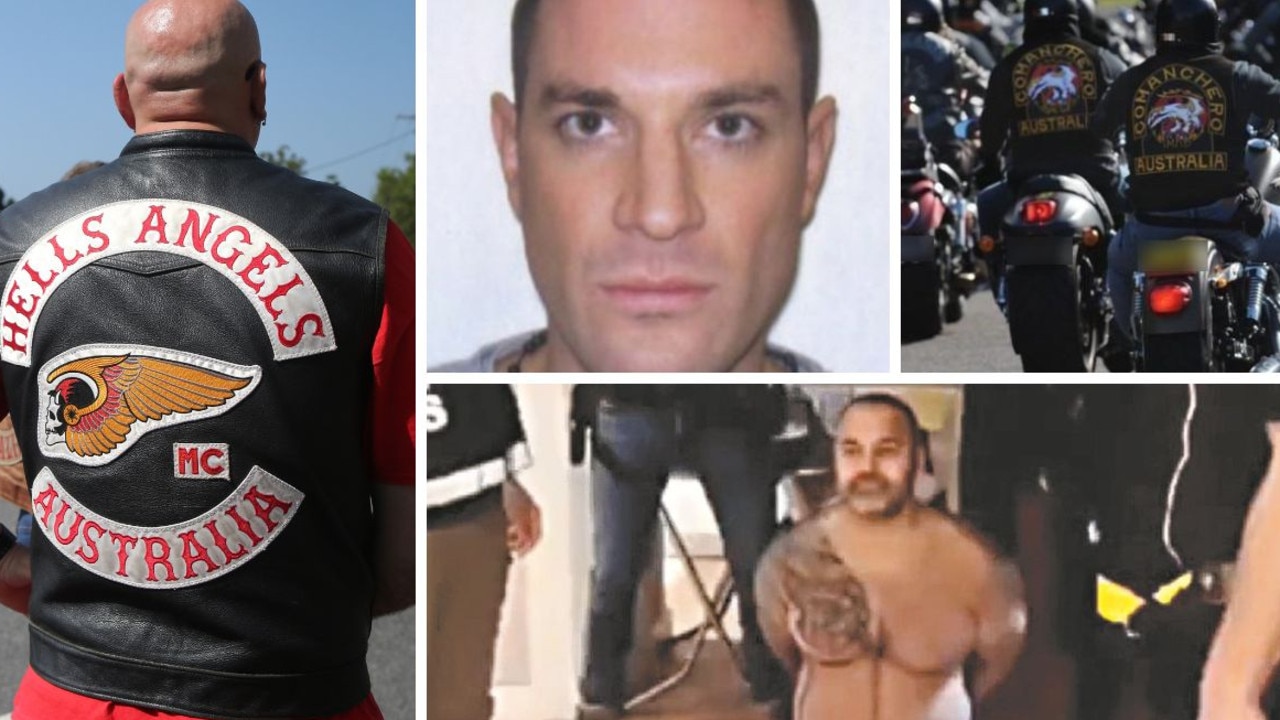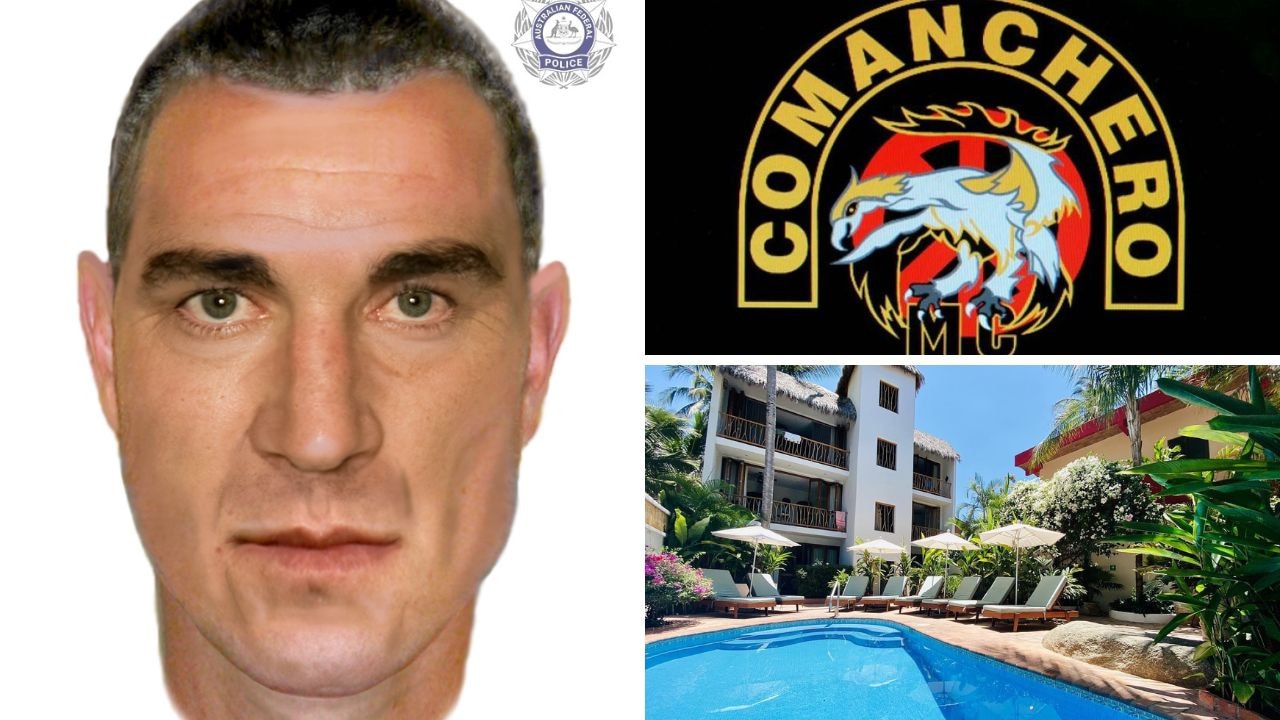Photo that revealed how new Australian drug kingpin Anthony Phillip Sitar is now in Mexico
Anthony Sitar is an Australian fugitive who is a global drug kingpin working with a Mexican cartel, Comanchero and Lone Wolf bikies. See how in our new docuseries Narcos on the front line.
Narcos on the Front Line
Don't miss out on the headlines from Narcos on the Front Line. Followed categories will be added to My News.
Exclusive: An Australian fugitive who has evaded authorities for more than a decade has emerged as an international drug kingpin brokering billion dollar deals from his South American hideaway.
Anthony Phillip Sitar, 43, has been disciplined and careful since he fled the country on the day he was about to be arrested for a $300 million ice and cocaine shipment.
He is now suspected of being a major player in the drugs game acting as a broker between Mexico’s Jalisco New Generation (CJNG) cartel and the Comanchero and Lone Wolf bikie gangs.
But his cover has been blown because of a family snap he sent to friends, which has helped police narrow down his location.
The image, which includes a distinctive balcony, has given police their best clue to his whereabouts in years.
Mexican police had revealed that Australian bikies were basing themselves in the coastal areas around Puerto Vallarta, a seaside resort town on the Pacific Ocean.
A Google maps search of nearby holiday hotspots showed that San Pancho’s Palmar Tropical Hotel had the same thatched roofs and balconies as shown in Sitar’s picture.
Watch episode 1 of our new docuseries Narcos on the front line above.
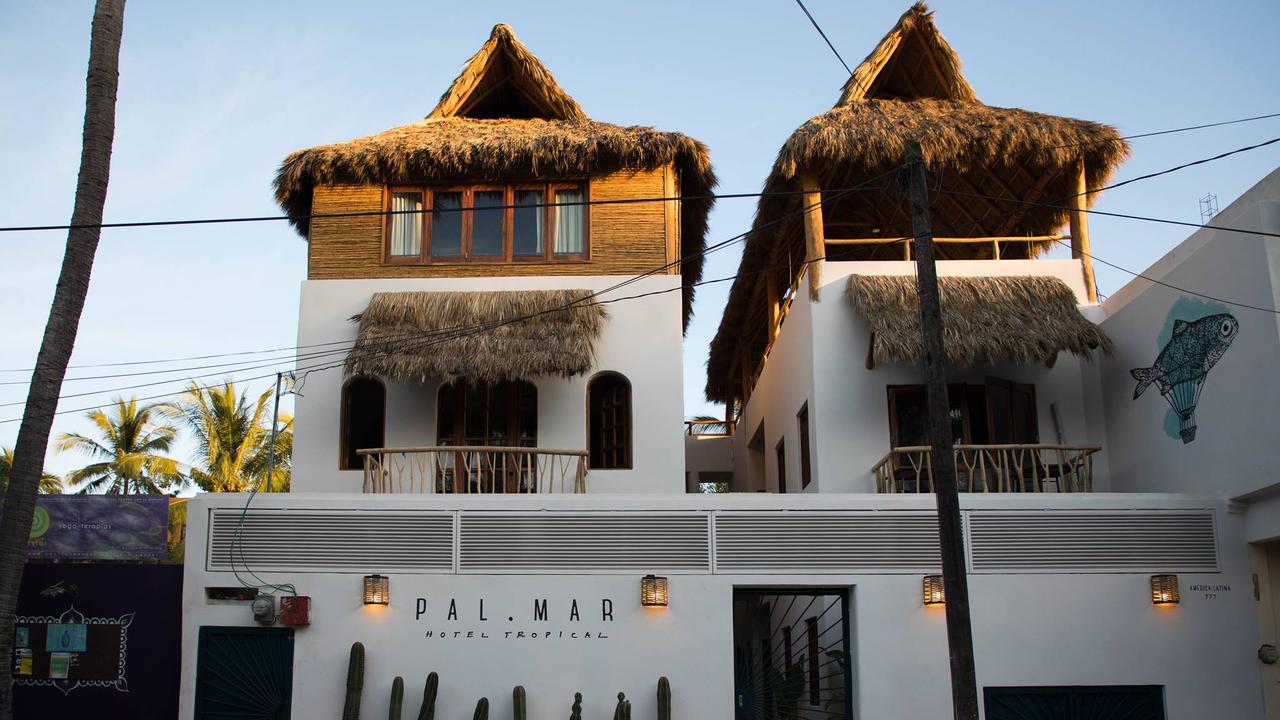
An Australian Federal Police officer with knowledge of the case but who was unable to speak publicly said Sitar was a “significant player in the Australian drug market”.
“He’s been on the run since October 2011 for alleged drug importations into Australia and he’s at least we strongly believe he is in Mexico,” the officer said.

“Mexico’s 128 million people - it’s very easy to hide here. He’ll make a mistake without a doubt.
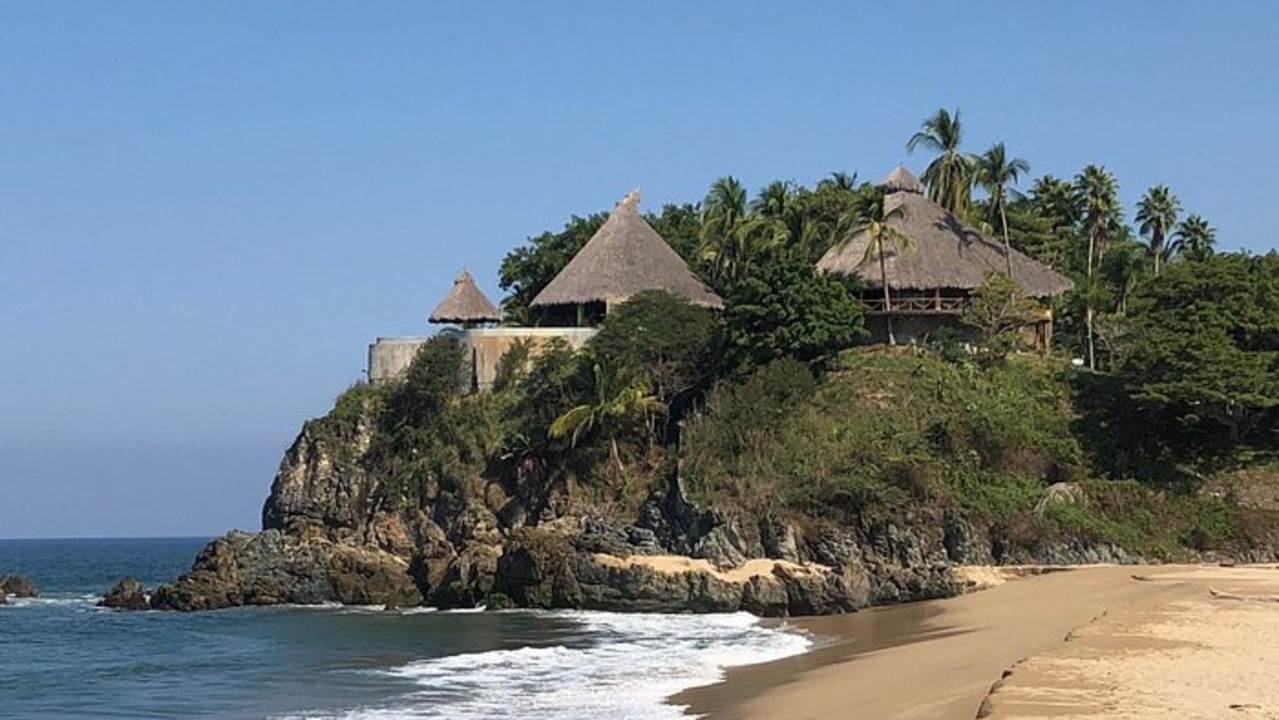
“We’ll be there with the Mexican law enforcement arm to find him when he does make that mistake.”
Sitar is subject to an Interpol Red Notice, and is one of the Australian Federal Police’s high priority targets.
He disappeared on the day he was about to be arrested for importing 133kg of ice and 14kg of cocaine, which was concealed in beer bottles, into Melbourne’s docks.
Sitar was driving to his parents home near Albury and Wodonga on the New South Wales and Victoria border as his friends were arrested.
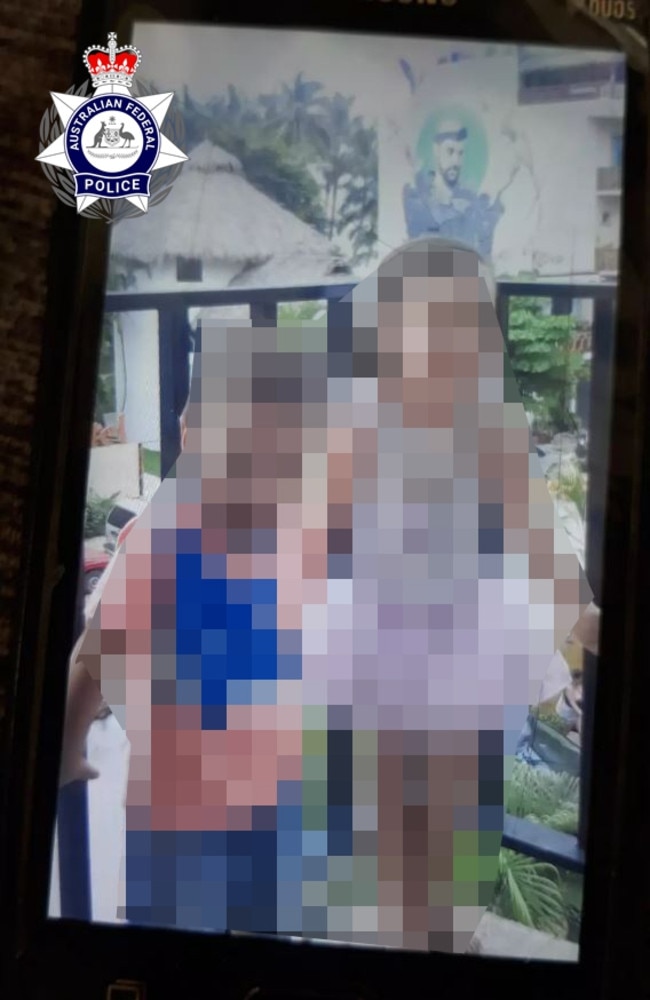
He had sent messages to his associates discussing getting hold of a fake passport on the day he fled, Supreme Court of Victoria documents state.
Sitar’s real passport was never used to leave the country.
He may have taken a domestic flight to Darwin or Far North Queensland where he may have been able to take a small boat to Indonesia or Papua New Guinea.
However he managed to get out of Australia, without leaving a trail.
There were no credit card transactions; he didn’t get money out from an ATM and did not contact family or friends via any mobile telephones registered in his name.
Police always suspected that he may have wound up in Mexico because of his links with the drug trade there and the fact his wife’s family lives there.
Sitar had married a Mexican woman named Monica in 2004, shortly before she applied for an Australian visa.
The beer used to hide the drugs in the 2011 shipment into Australia was from a microbrewery called Cucapa, which has a base on the Baja peninsula in Mexico.
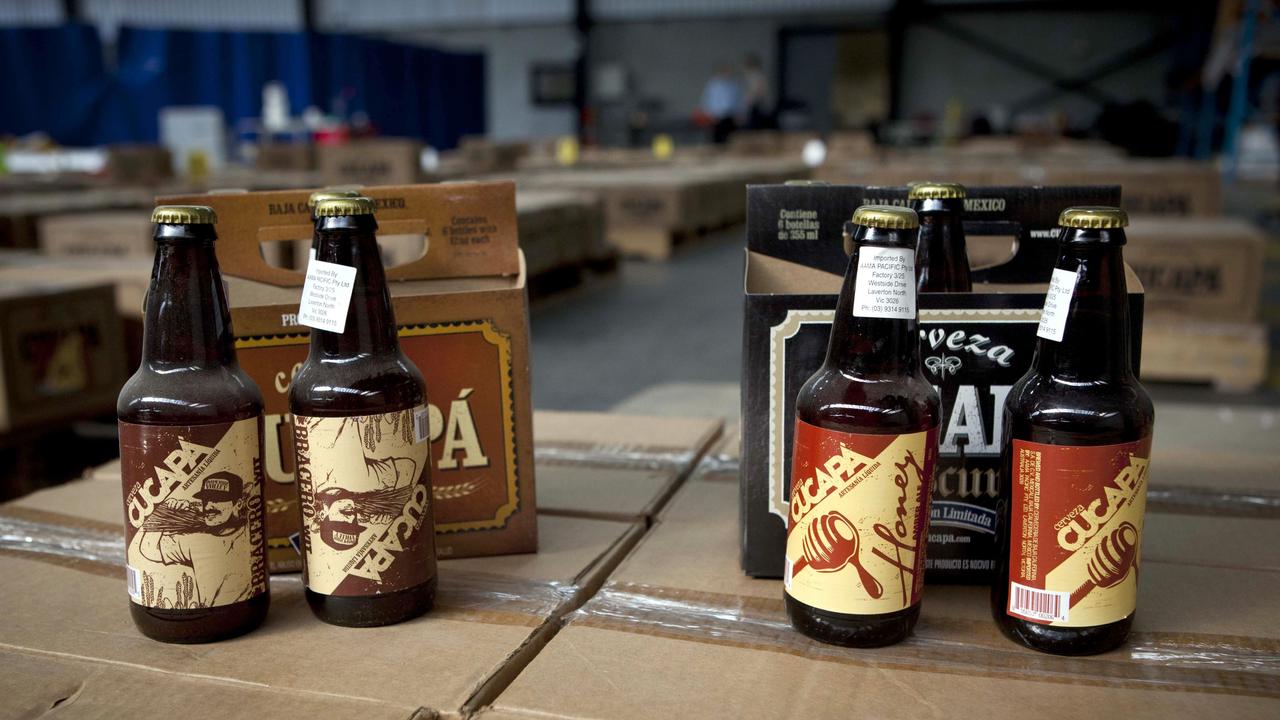
Sitar had been making connections on his visits to the country for years before the major bust.
There are now questions about whether Sitar and his wife Monica are still together.
Monica has been seen in a social media photograph in Guadalajara, which is famous for its tequila and mariachi music.
Guadalajara is also the nation’s second biggest city, home to 1.5 million people and the CJNG cartel.
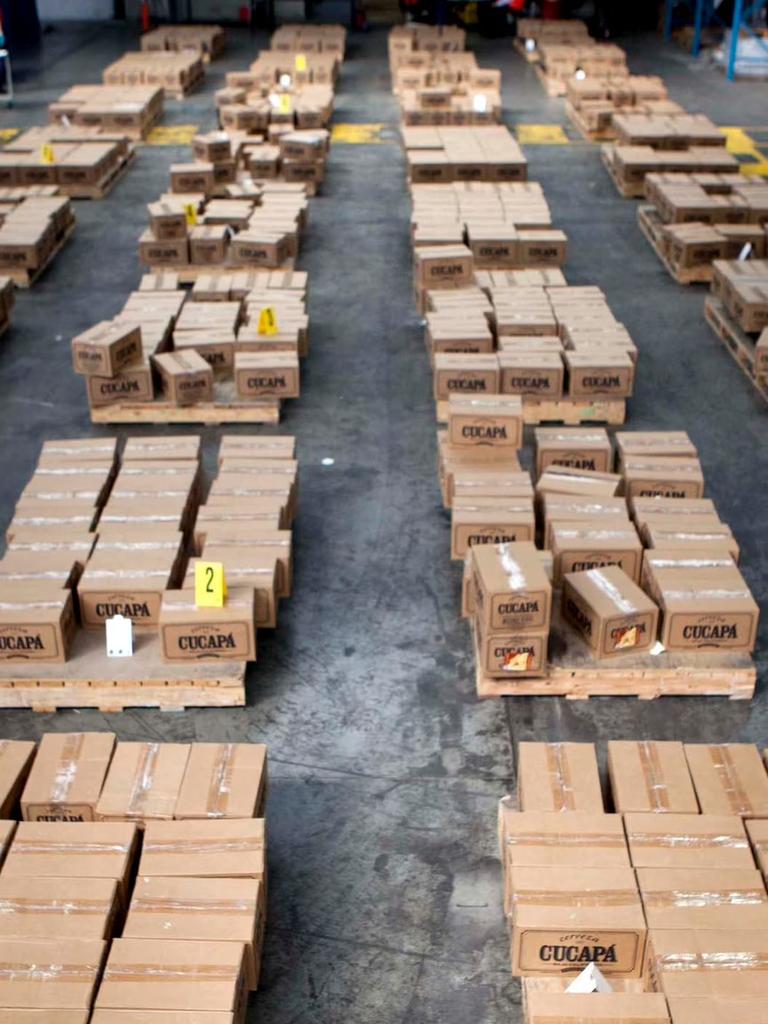
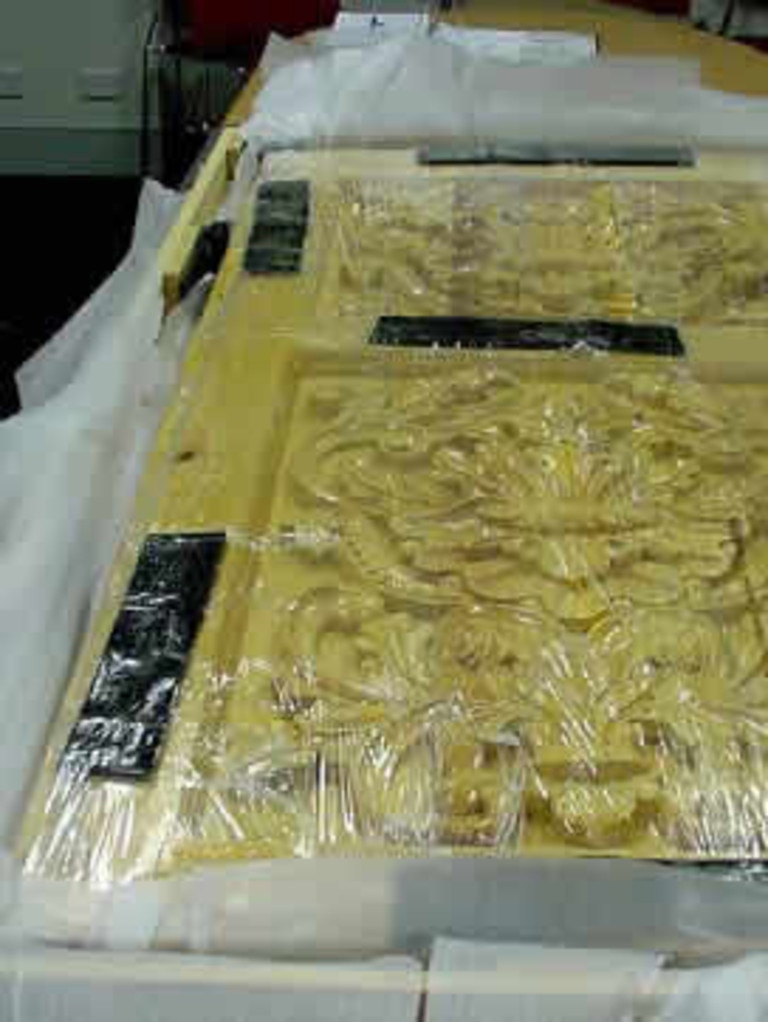
Sitar, a former pro-am kickboxer, has been in dangerous territory acting as a broker between the Mexican cartels and bikies.
The CJNG has been known for its arriving at the homes of police on their days off and torturing them to get the names of other cops before they are killed.
The gangs then go and repeat the terrifying process.
The CJNG also dismembers its victims – eight call centre workers who tried to quit their jobs working as real estate scammers for the drug lords were found in black bags thrown to the bottom of a ravine in Jalisco state in May.
Brokers such as Sitar can be terrified of the cartels, but also wary of jealous rivals who sell them out to police.
“It’s a dog eat dog world with them because of the money that they make and the profit they make in Australia is astronomical from cocaine and meth trafficking,” the AFP officer said.
“Quite often we get some of these brokers that are trying to push other people out of the market.
“And again, you know, like our fugitive Anthony Sitar, quite likely he’s here brokering for methamphetamine trafficking and probably cocaine trafficking into Australia.
“From time to time we get tip offs against other people like the tequila shipments and things like that.
“It’s quite likely people like Sitar and others do provide tip offs to the AFP and to other agencies so they can put the resources onto those other organisations and cut out some of the competition.”
Sitar’s exact location remains unknown, but it has been narrowed down to several key coastal areas.
He may also have travelled to Zihuatanejo, which was made famous as the beach where Tim Robbins character Andy Dusfrene disappeared in the 1994 film Shawshank Redemption because the “Pacific has no memory”.
That picturesque beach is a two-hour drive from Lazaro Cardenas, one of Mexico’s busiest ports and a major drug shipment route.
According to police allegations contained in Supreme Court documents, Sitar was unlike the wrongfully accused Dusfrene in that popular movie.
Sitar was the co-owner of the Destino Latin Bar in Chapel St, Windsor, in Melbourne’s inner east.
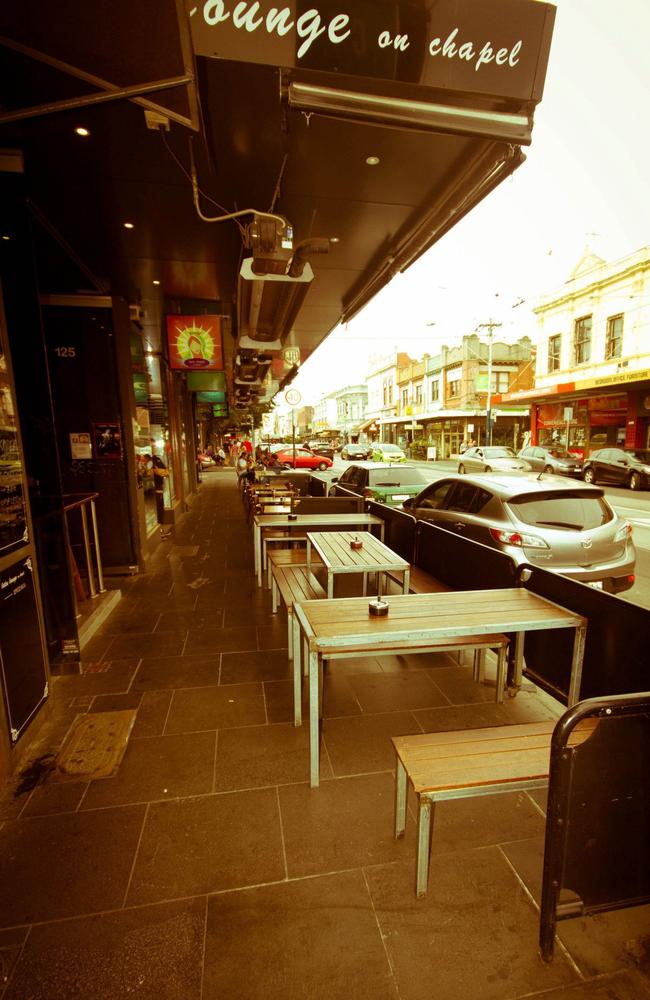
The bar specialised in Mexican beers, but Sitar and a co-owner also tried to bring in the nation’s other famous export.
Sitar’s friend Adrian Franze was sentenced to 17 years jail for his part in the importation, with liquid forms of cocaine and ice found in 46 of the 84 cartons in the shipment.
Another of Sitar’s mates, Erol Ramazanoglu, plead guilty to six charges relating to the drugs.
He was sentenced in 2013 to eight years’ jail.
But Sitar got away.
Sitar, according to Supreme Court documents, had been in regular contact with freight forwarder Hellmann Worldwide Logistics.
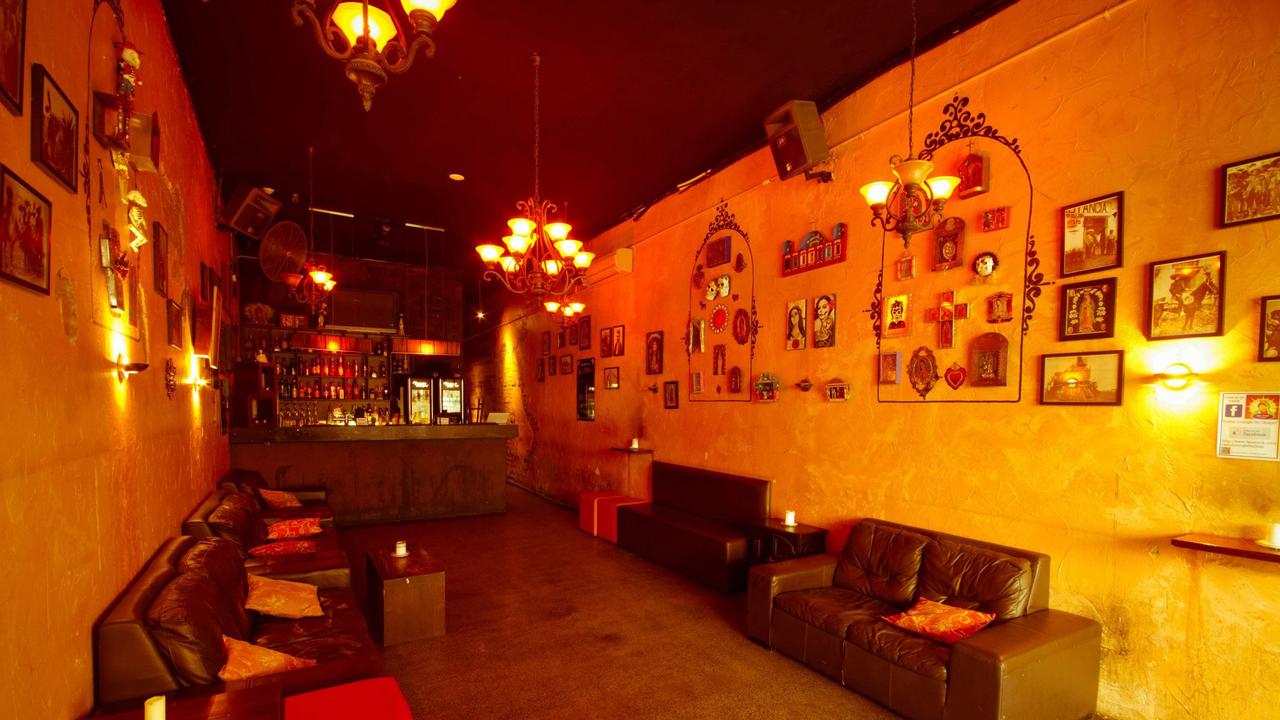
He had emailed the company about the delivery of a container which arrived in Port Melbourne on the ship Manet.
“Preliminary testing indicated that methylamphetamine and cocaine were present in 1,061 of the 1,100 bottles, contained within 46 of the 84 boxes,” court documents state.
“The AFP officers filled 1,100 similar ‘substitute’ bottles with water, attached fresh Cucapa labels to them, and put them in the original boxes.
“The boxes were then placed back onto the pallets and into the shipping container.
“On 18 October 2011, the container was transported back to the Port of Melbourne. On that same day, Sitar twice telephoned HWL, at 11.14am and 12.39pm. On the following day, he transferred $1,500, through Western Union, to a bank account in Mexico.”
Sitar paid the $11,411.36 import duty on the beer shipment with a cheque on October 24, 2011 at HWL’s Tullamarine depot.
HWL was not accused of any criminal activity.
That same day Sitar had the container delivered to a warehouse he owned in Laverton North, in Melbourne’s western suburbs.
Sitar was then trying to move what he believed were the drug onto a supplier named “John”.
But he was unable to make the drop, with police just two days later arresting Ramazanoglu with the beer that was being stored at his Yarraville home.
Somehow, Sitar knew the police were about to come knocking on his door. He wasn’t home.
The AFP has been determined to get Sitar back to Australia even though they suspect he was living under a new name.
“Yes, his time will come,” the AFP officer said.
“There’s plenty of other fugitives that the Australian Federal Police have been looking for. Sometimes it’s a few years. Sometimes it might be after 10 years. He will see his time to answer those charges back into Australia when he does surface.”
Originally published as Photo that revealed how new Australian drug kingpin Anthony Phillip Sitar is now in Mexico


